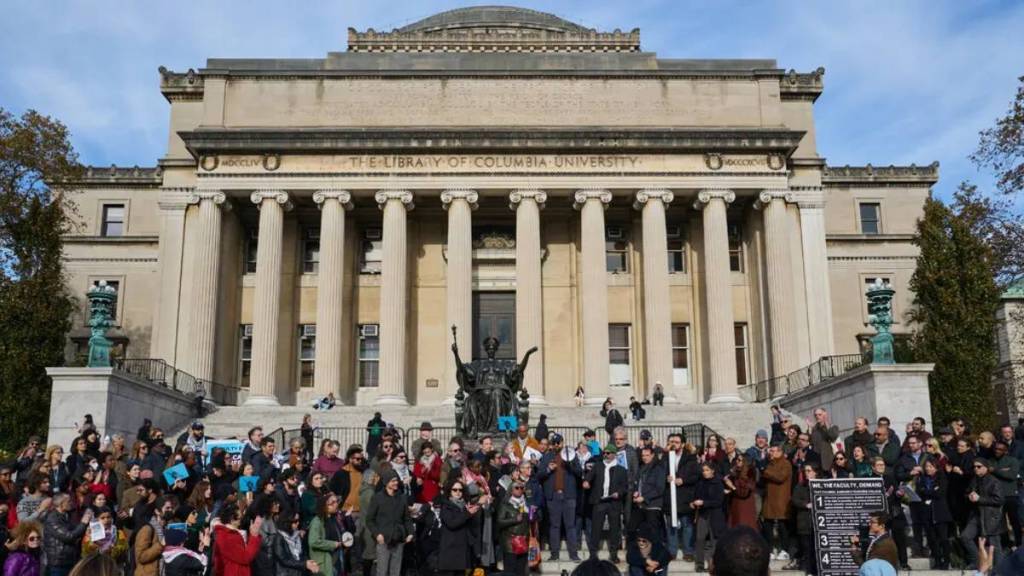Numerous faculty members at New York’s Columbia University staged a walkout on Monday, standing in solidarity with students who were arrested during last week’s pro-Palestinian protest. Hundreds of teachers expressed their frustration by participating in the walkout, coinciding with the reinstallation of encampment protest tents on campus, which had been removed following the arrests of hundreds of students.
The University President Minouche Shafik responded to the situation in a message to the school community that she was “deeply saddened” by what was happening on campus.“To de escalate the rancor and give us all a chance to consider next steps, I am announcing that all classes will be held virtually on Monday,” Shafik said.
The massive protest has encouraged students of other universities like Yale, New York University, Massachusetts Institute of Technology, and the University of Michigan to demand their schools condemn Israel’s assault on Gaza and divest from companies that sell weapons to Israel, according to the news agency, Associated Press.
Freedom of expression
In the wake of the recent arrest of over 100 pro-Palestinian demonstrators who had occupied Columbia University’s green area, various measures have been taken as educational institutions grapple with the balance between upholding free expression and ensuring campus safety and inclusivity.
College campuses across the nation have been witnessing protests, sparked by Hamas’ attack on southern Israel, resulting in the deaths of approximately 1,200 people, predominantly civilians, and the taking of roughly 250 hostages. Amid the ensuing conflict, the Gaza Health Ministry reports that Israel has caused the deaths of over 34,000 Palestinians in the Gaza Strip, with a significant number being children and women.
Antisemitic Rhetoric
These ongoing protests have deeply divided students, with Shafik, a notable figure, condemning student demonstrations, citing an increase in harassment against Jewish students and the prevalence of anti-Semitic rhetoric.
Conversely, students have countered the narrative of “hate,” asserting that their protests are not anti-Semitic but rather peaceful and inclusive. They attribute the issues to “inflammatory individuals” who they claim do not represent them, thereby exacerbating the situation on campus.
(With AP Inputs)

